The great thing about landscape photography is that there is just so much to photograph...
Mountains, rivers, beaches, sunsets, deserts - you name it!
But with such a wide range of potential subject matter out there, that means that landscape photographers usually have to have a pretty broad kit that's flexible enough to meet such varied needs.
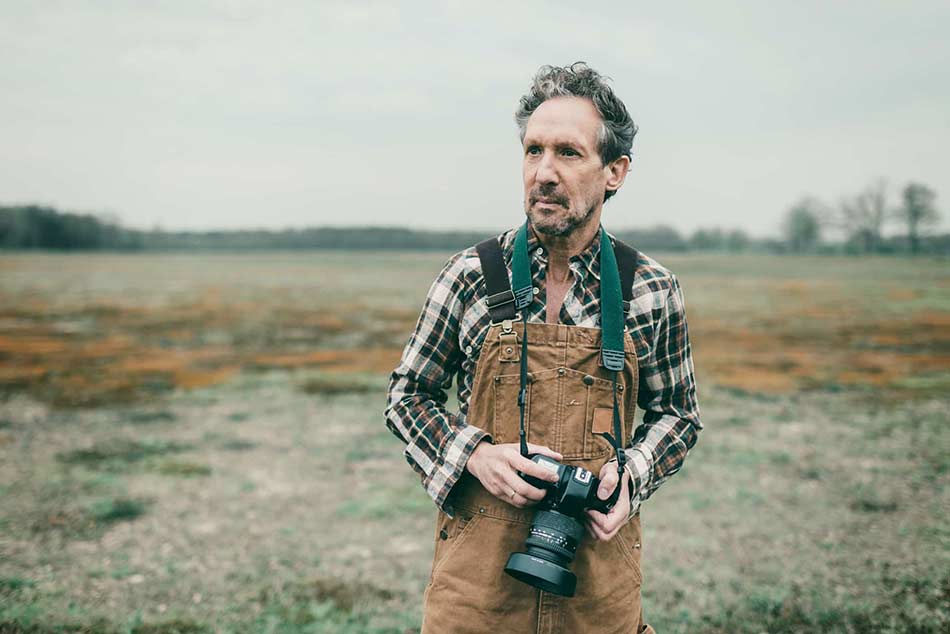
Of course, not everyone has the budget to buy duplicate gear, like having a full frame and a crop sensor camera body in your kit.
So that begs the question, if you like to photograph landscapes, is a full frame or a crop sensor a better bet?
Let's find out...
The Case for Full Frame Landscape Photography
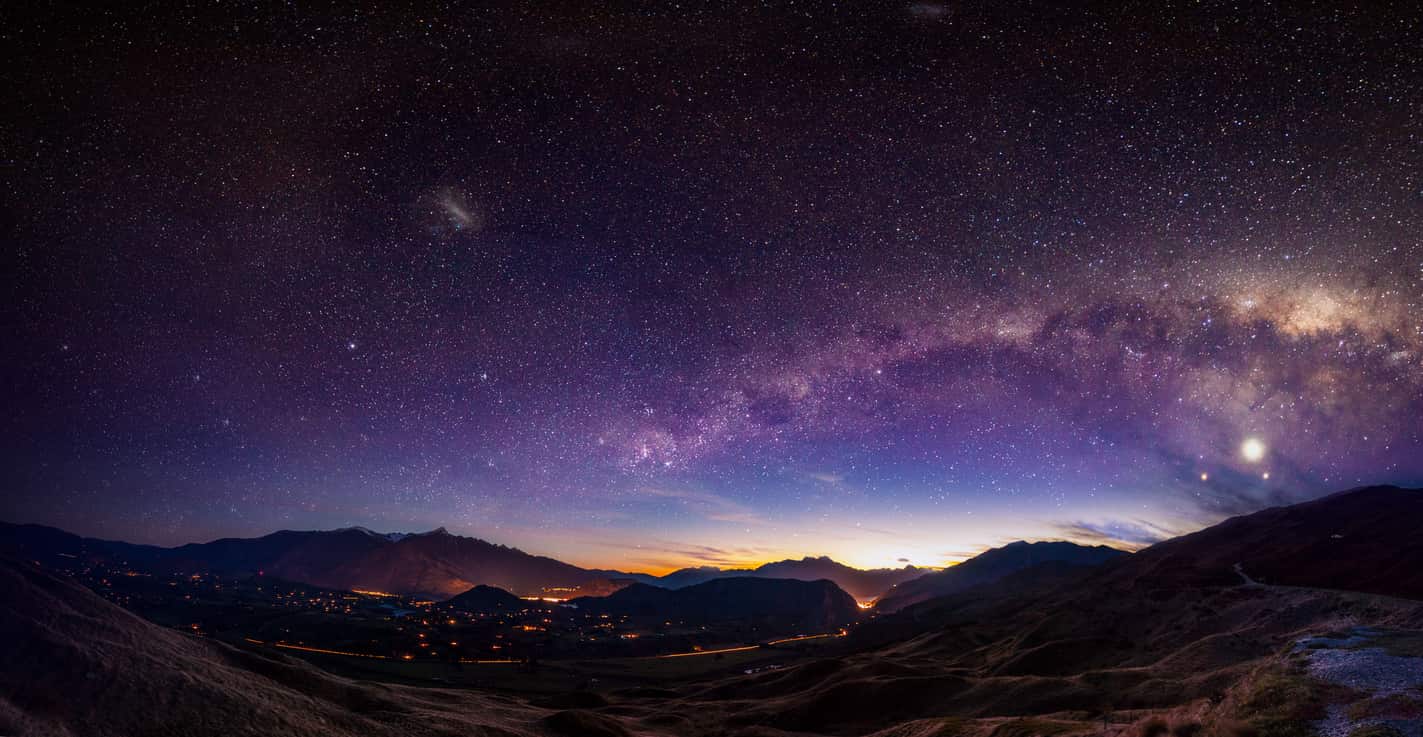
There are several reasons why a photographer would upgrade to a full frame camera.
First, they offer superior image quality because they have larger sensors. For example, a full frame camera's sensor is the equivalent size of a 35mm piece of film, or roughly 36mm x 24mm. By contrast, a crop sensor is much smaller, on average about 26mm x 22mm.
With all that extra space for more pixels (and larger ones at that), that means that full frame sensors produce images that are more detailed, especially if you're shooting in low-light situations, like photographing the night sky, as seen above.
Additionally, with a higher resolution sensor comes higher resolution prints. That means that if your goal is to print out huge images, a full frame will be the better bet.
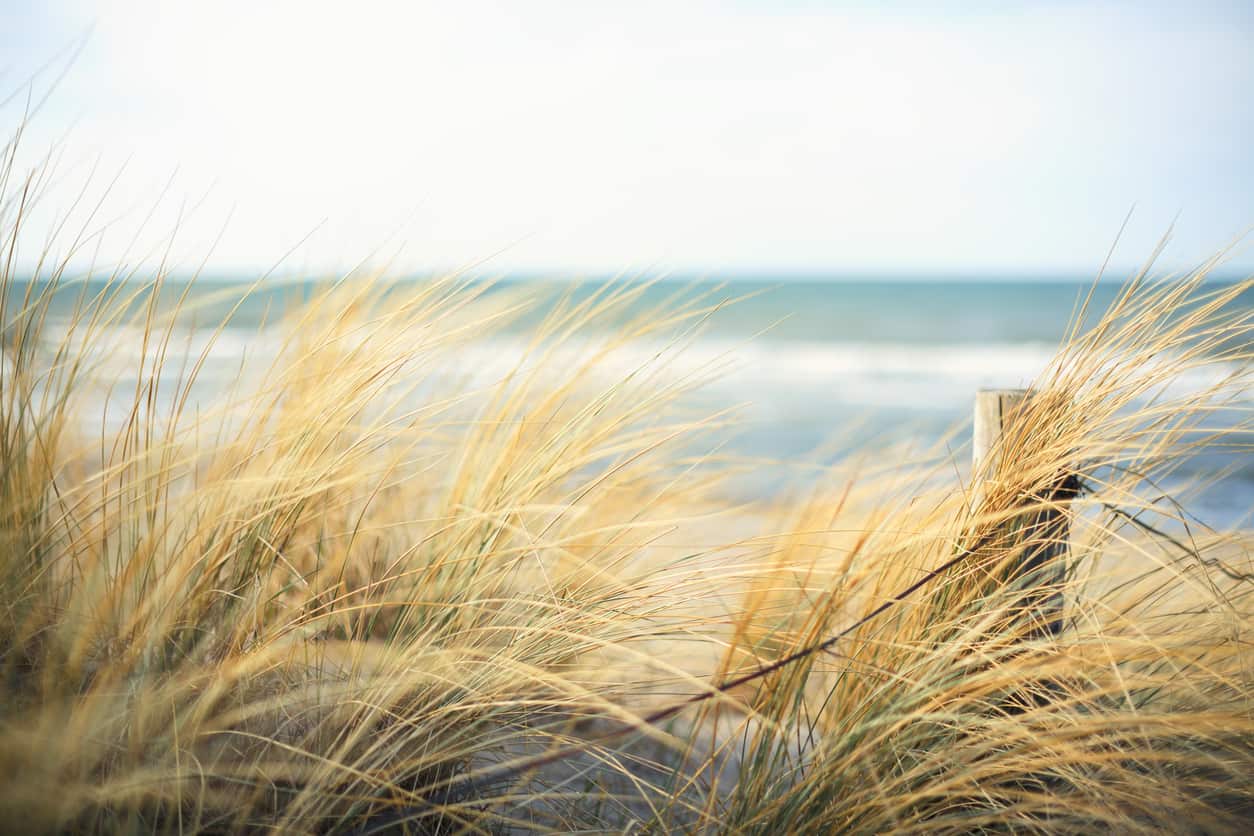
The second reason photographers upgrade to a full frame camera is that it offers expanded depth of field options.
That is, the larger a camera's sensor, the shallower the depth of field it can achieve, especially at medium focal lengths and wide-angle focal lengths.
Now, most landscape photographers will operate on the opposite end - with a very large depth of field. However, with a full frame, you can more easily experiment with the artistic representation of the subject because you have a greater capability of throwing the background (or foreground) into blurry goodness.
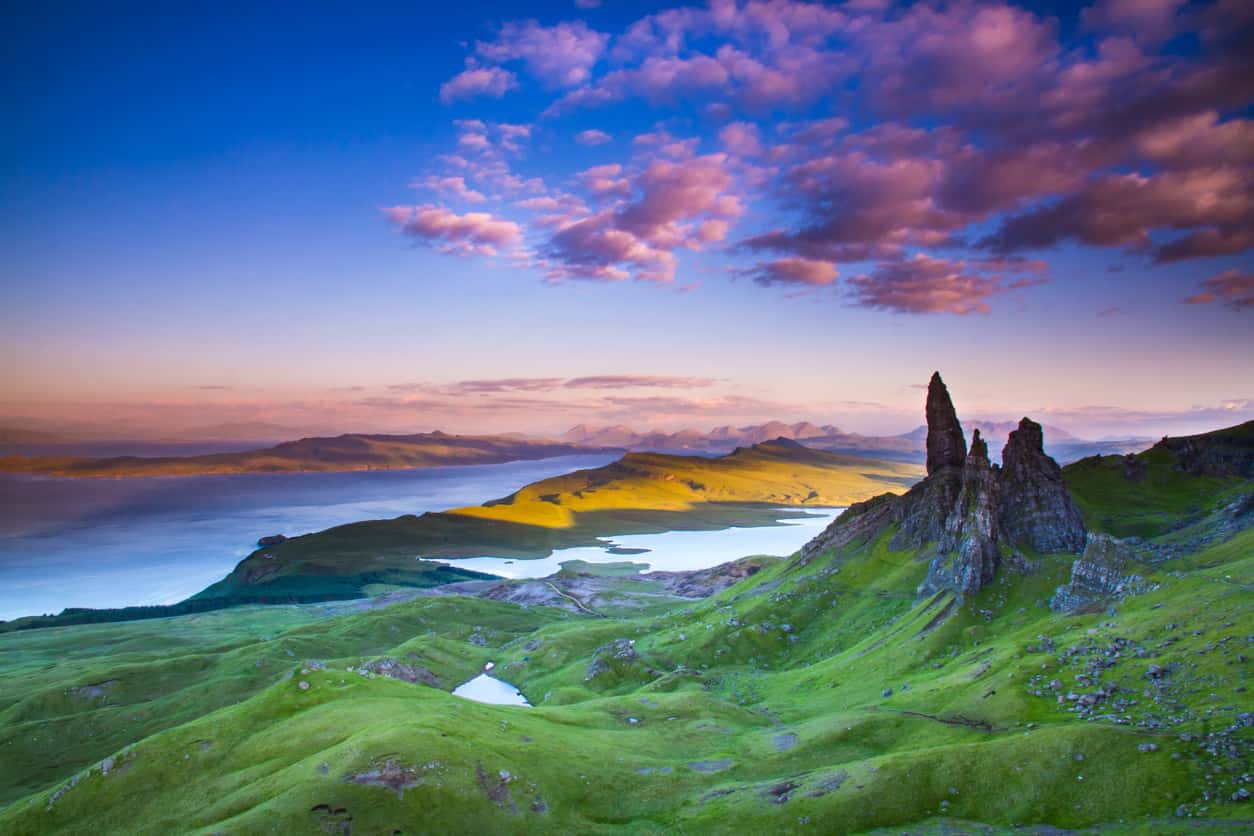
A final reason why photographers might opt for a full frame camera is the angle of view it provides.
Since full frame cameras have a crop factor of 1:1 (where many crop sensor cameras might be anywhere from 1.3x to 2x), they can capture more of the scene in the shot.
For example, when shooting with a wide-angle lens like a 14mm, a full frame camera can capture the entire angle of view of that lens.
However, that same lens on a crop sensor camera might behave like a 22mm lens (depending on the crop factor), so you can't fit as much of the scene into the shot.
The Case for Crop Sensor Landscape Photography
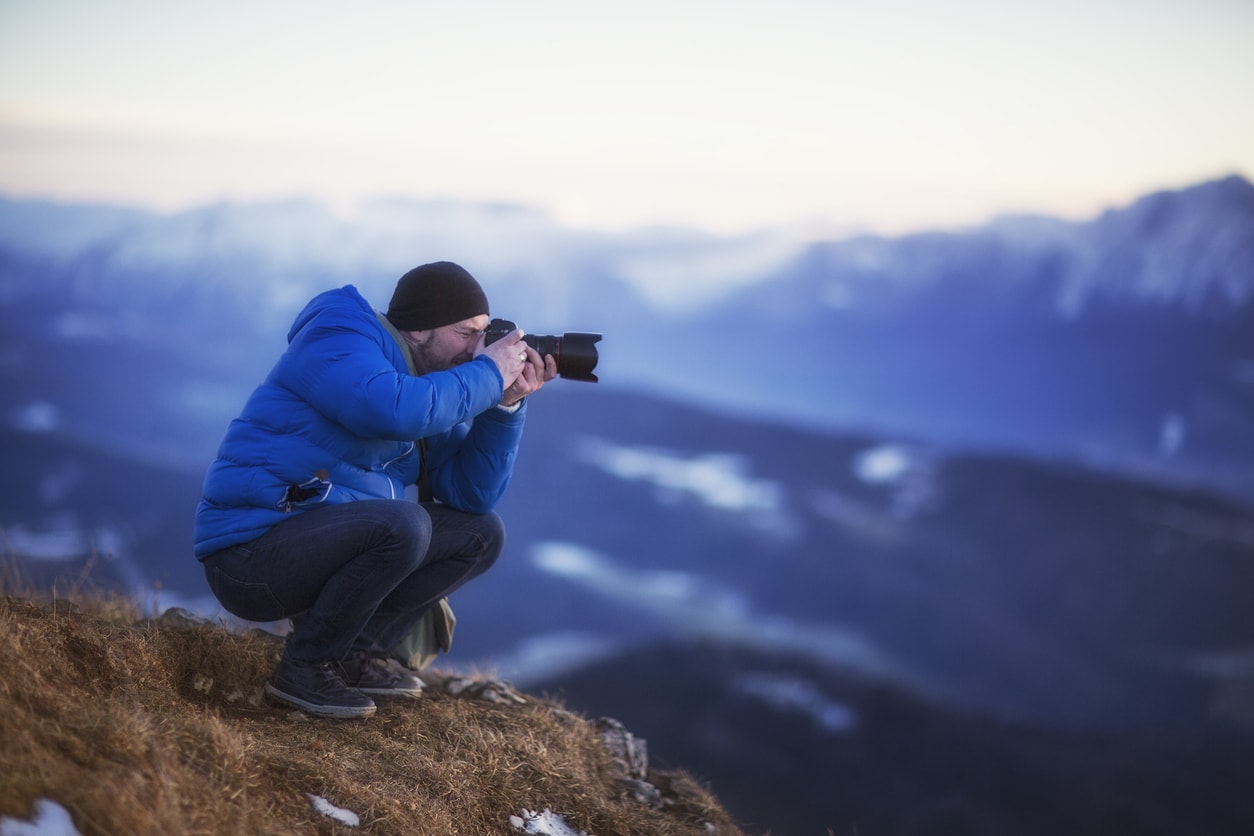
As noted above, the strengths of a full frame camera are really the downfalls of a crop sensor camera.
But that's a two-way street...
One of the primary reasons why photographers might choose a crop sensor camera for landscape photography is the price.
Not only do full frame cameras tend to be more expensive than crop sensors, but lenses for full frame cameras also tend to be more expensive.
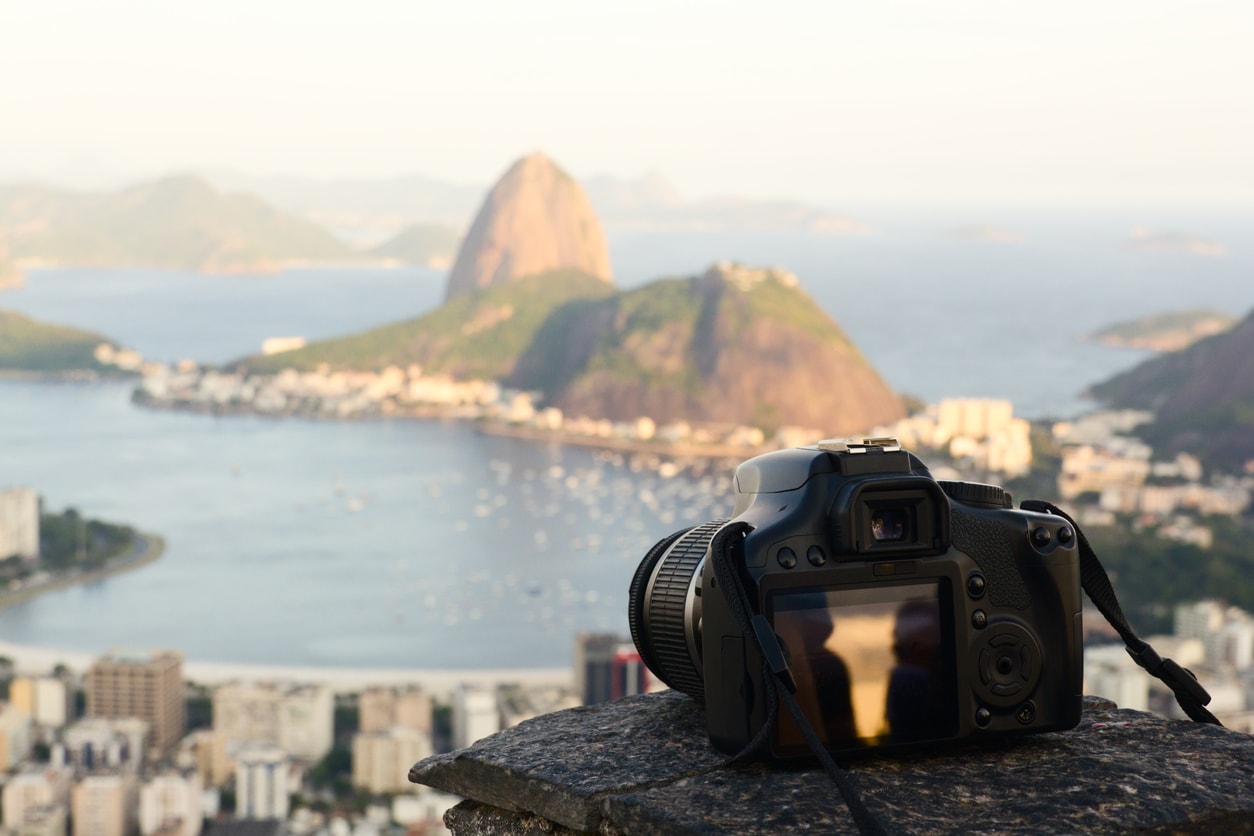
Another issue with full frames is that the camera bodies are bigger, bulkier, and heavier, which, if you're a landscape photographer that does a lot of hiking around, that can be a bit of an issue.
Crop sensor cameras don't need to be as big because the sensor is smaller, so they offer the advantage of being lighter weight and easier to maneuver.
What's more, though they have smaller sensors, crop sensor cameras have come a long way in the resolution department. Though the images you take with a crop sensor camera still can't match the resolution of those taken on a full frame, they are nonetheless high enough quality that you can create pretty large prints without losing sharpness and detail.
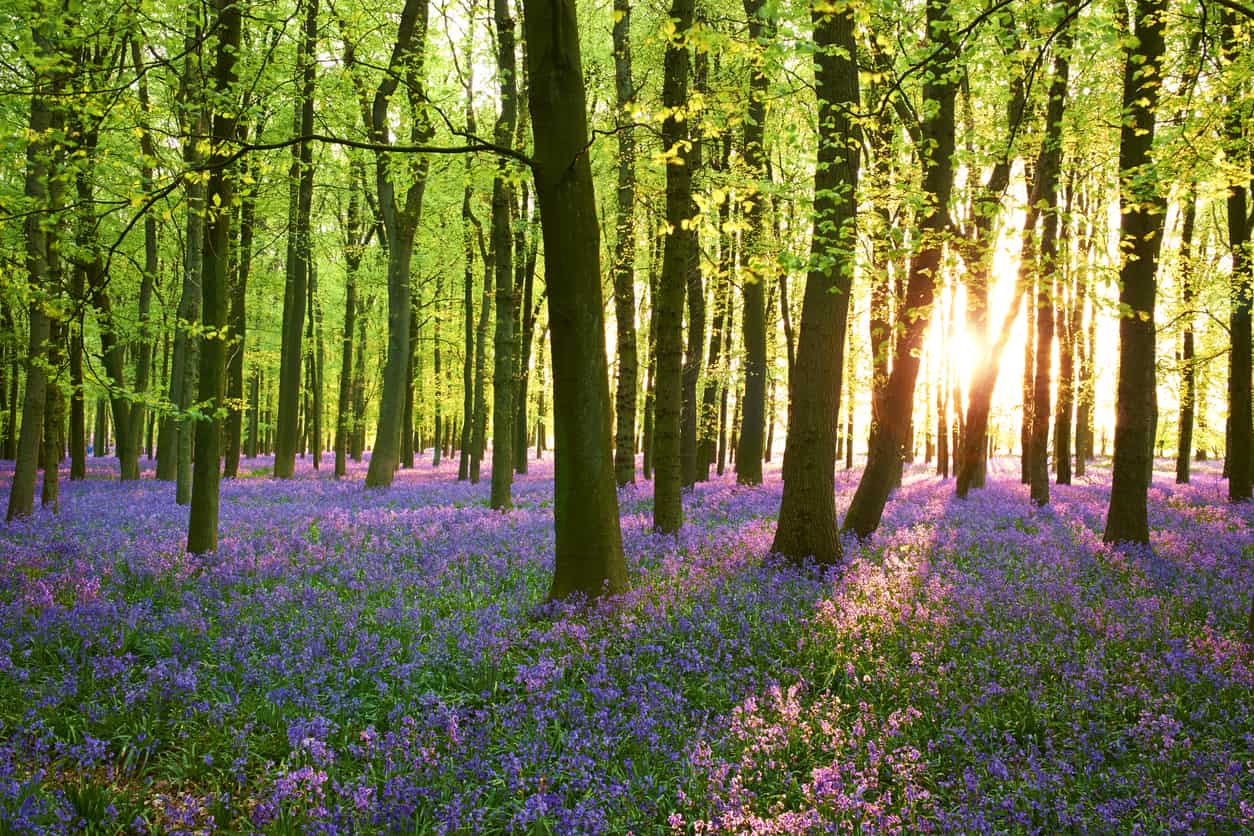
Another benefit of landscape photography with a crop sensor body is the impact they have on the effective focal length of a lens.
Remember, as I noted earlier, a full frame camera has a 1:1 crop factor, so a 24mm lens acts like a 24mm lens.
But where full frame cameras offer the advantage of capturing more of the scene, crop sensor cameras offer the advantage of extending the reach of a lens for more intimately framed shots, like the one shown above.
So, that same 24mm lens on a crop sensor body will act like a 38mm lens (though that varies depending on the crop factor). That means that with a crop sensor body, you can use standard lenses as short telephotos, short telephotos as long telephotos, and so forth.
If your subjects tend to be wildlife, for example, this gives you an obvious advantage because you can get closer shots without having to spring for a giant (and expensive) lens.
So, Which is Best?
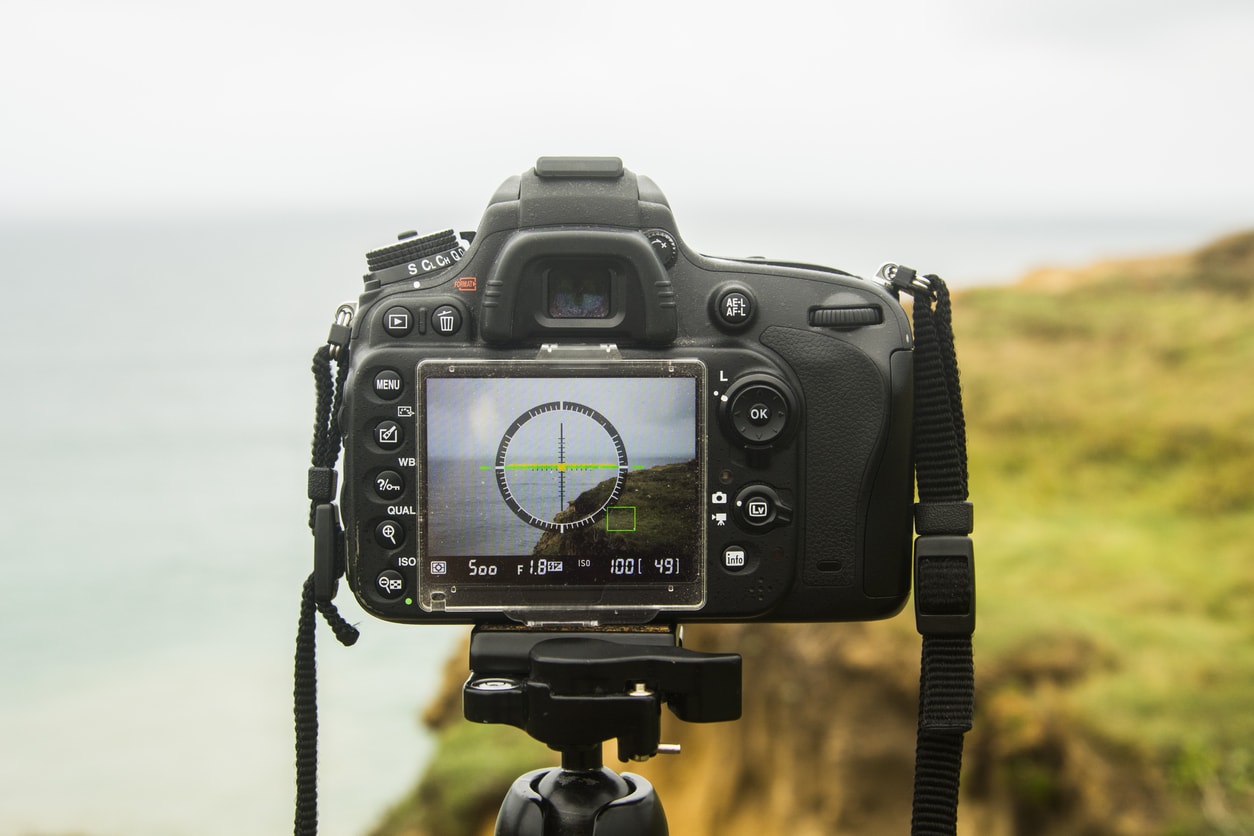
When it comes down to choosing between a full frame or a crop sensor camera for landscape photography, the answer to "Which is best?" is a big, fat "It depends."
If you want higher resolution images and better low-light performance, a full frame camera is the way to go.
If budget is a concern or you want to use crop factor to give your lenses a longer effective focal length, a crop sensor camera is the better bet.
It really just depends on what your goals are for your photography and how much money you have to spend to achieve those goals.
How to Improve Your Landscape Photos Regardless of the Camera
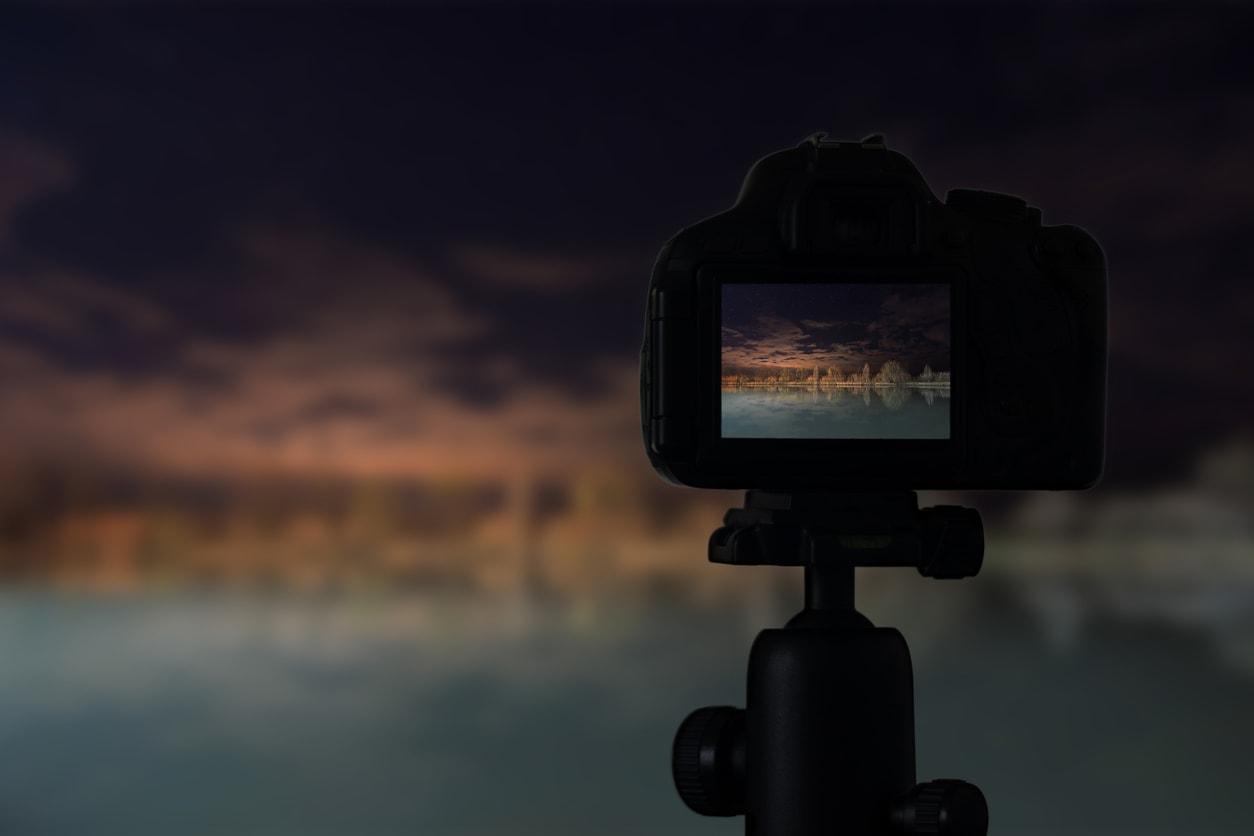
Of course, the quality of the landscape photos you take doesn't just depend on the camera you use.
In fact, I'd argue that there are much more important factors at play...
The quality of the lenses you use certainly influences the quality of your shots because a high-end lens with quality optics will produce sharper, more detailed images than a low-brow kit lens every single time.
Using a good tripod to give your camera stability and ensure that your images are level will also do wonders for the images you take.
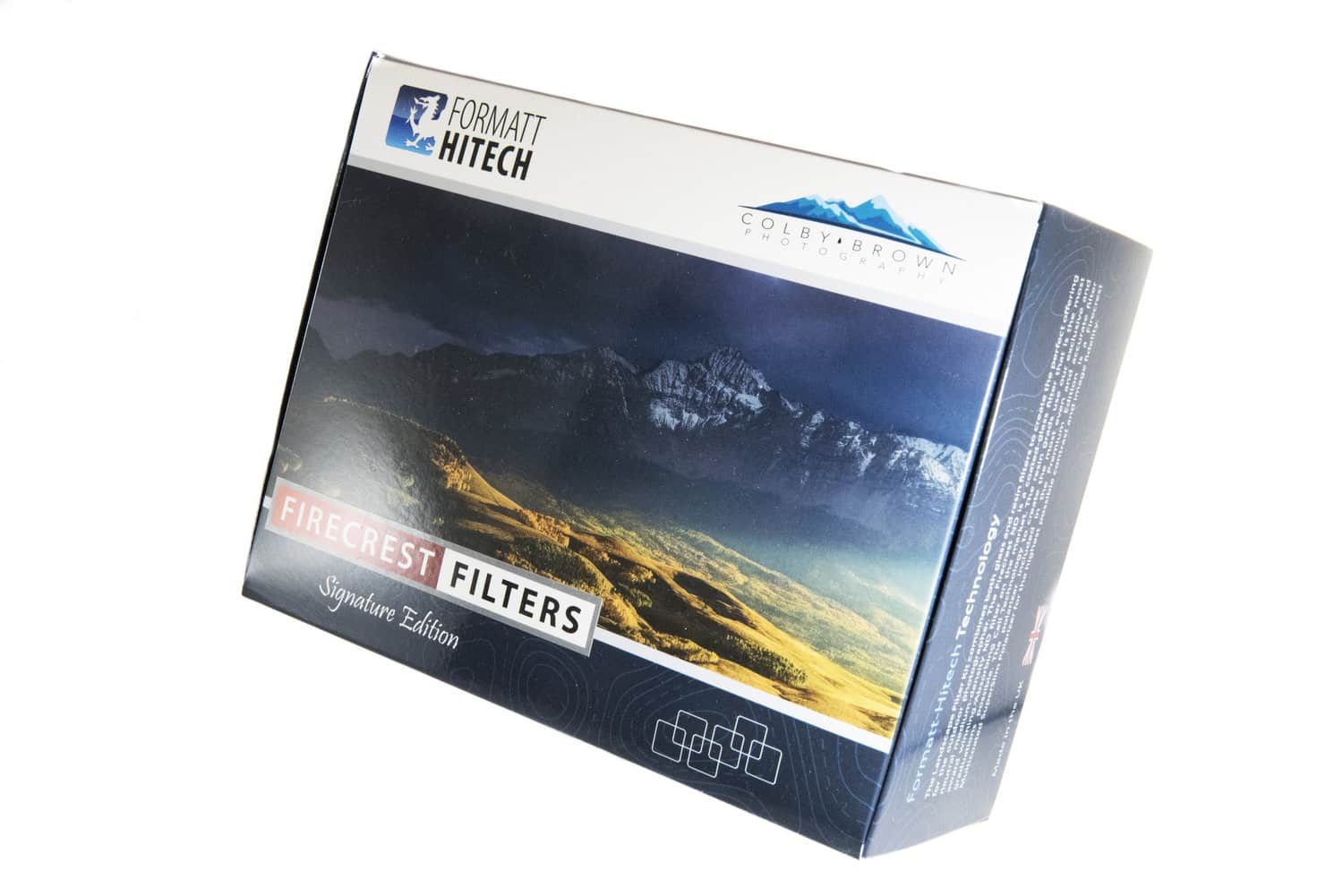
Another important accessory to have as a landscape photographer is a good set of filters.
I know this might be a bit of an old-school recommendation given how powerful post-processing programs have become, but when it comes down to it, the effects you can achieve in-camera with good filters are still way, WAY better than what you can conjure up on your laptop.
That's especially true of Formatt-Hitech filters which are made of the finest materials such that you can get the highest quality photos.
Their Colby Brown Signature Edition Landscape Photography Filter Kit is an ideal setup for landscape photography enthusiasts.
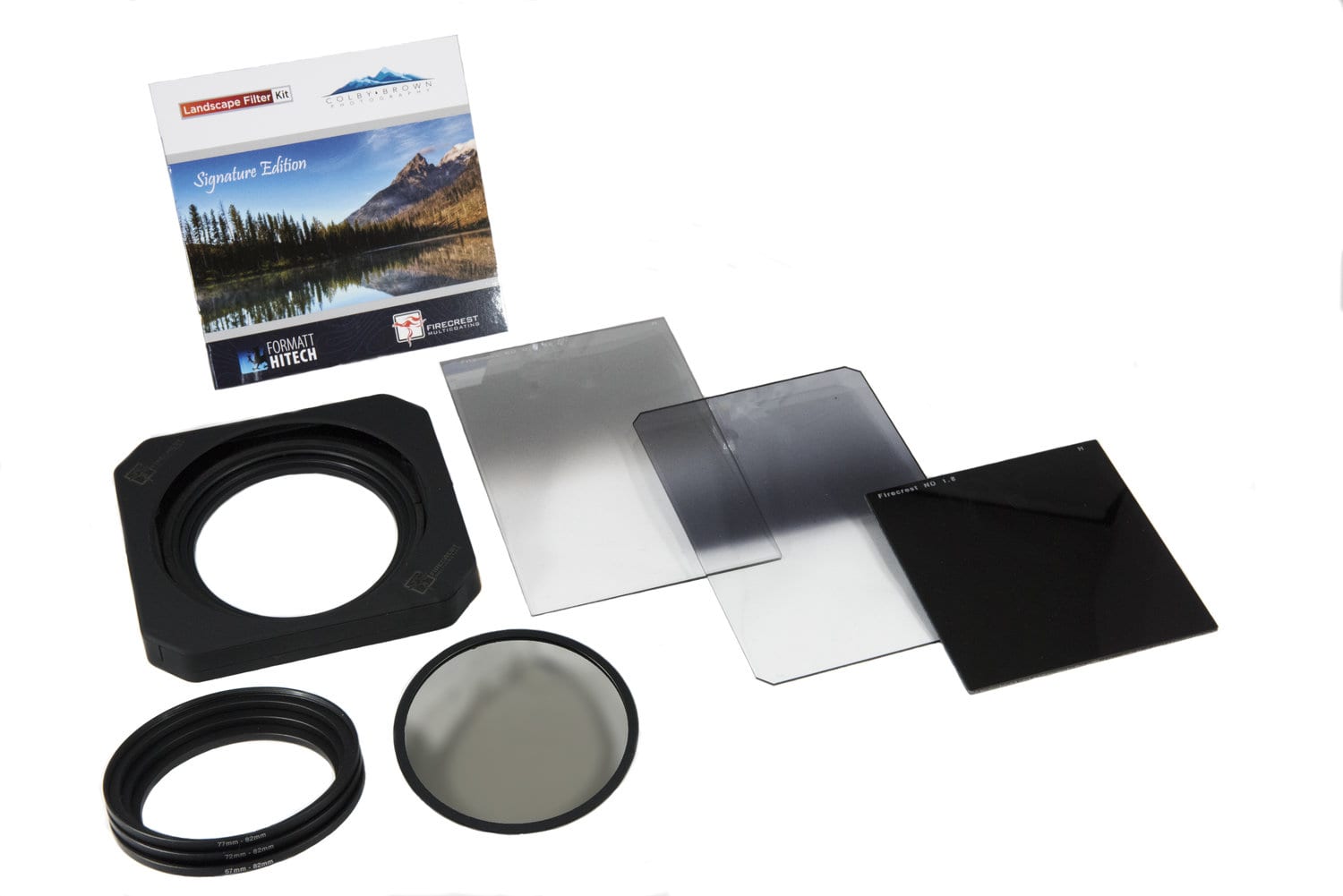
That's because the kit comes with everything you need to take your photos to the next level:
- A Firecrest UltraSlim Polarizing Filter, which cuts down glare, reduces haze, and improves contrast in the sky.
- A Firecrest 6-Stop Neutral Density Filter for creating gorgeous daytime long exposures that accentuate the movement of clouds and water.
- A Firecrest 2-Stop Soft Edge Graduated Neutral Density Filter for darkening bright skies and evening out the dynamic range between the sky and the landscape.
- A Firecrest 2-Stop Reverse Graduated Neutral Density Filter for taking improved photos at sunrise and sunset.
In other words, no matter what sort of landscape you want to photograph, this kit has the filters you need!
The kit also comes with a 100mm filter holder, adaptor and step rings, filter pouches, and an exclusive Colby Brown booklet to inspire your work.
Learn More:
- Get the Specs and Pricing on the Formatt-Hitech Colby Brown Signature Edition Landscape Photography Filter Kit
- Explore Formatt-Hitech's Line of Filters and Filter Kits
So, no matter if you elect to photograph landscapes with a full frame or a crop sensor camera, do yourself a favor and set yourself up for success with the right accessories.
Spend your money on a good lens (or several), a rock-solid tripod, and a top-notch set of filters like those from Formatt-Hitech.
In the end, those accessories may very well have a bigger impact on the quality of your photos than the camera you use.
This blog post about the topic "Is a Full Frame or Crop Sensor Camera Better for Landscape Photography?" was first published on our website here https://www.photographytalk.com/landscape-photography/7869-is-a-full-frame-or-crop-sensor-camera-better-for-landscape-photography